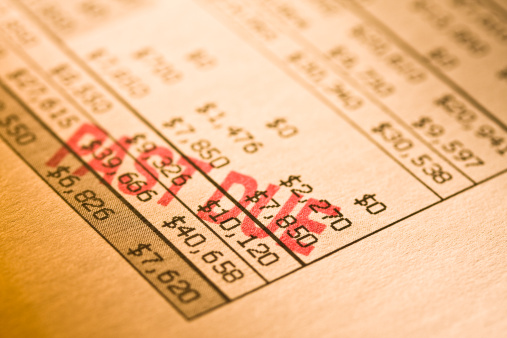
Consumer Financial Protection Bureau seek to assert rulemaking powers to oversee debt collectors.
Harassing and threatening phone calls, inaccurate demands, and failure to send notices are just a few examples of the many abuses chronicled in consumer complaints submitted to the Consumer Financial Protection Bureau (CFPB) about debt collectors. In response to these reports of potential misconduct, the CFPB has issued a preliminary announcement that it plans to overhaul the regulatory framework governing debt collection.
CFPB Director Richard Cordray stated that the Bureau is seeking comments “about what works and what does not in the current debt collection market.” Specifically, the CFPB seeks comments on how debt collectors should maintain accurate account information and how they should inform consumers of their rights and obligations. The agency also seeks comments on whether it should update its regulations to reflect advances in communication technology.
Prior to the enactment of the Dodd-Frank Act in 2010, the only federal law regulating debt collectors was the Fair Debt Collection Practices Act (FDCPA), enacted in 1977. But the FDCPA expressly forbade the Federal Trade Commission (FTC) and other agencies with enforcement powers under the FDCPA from promulgating rules and regulations for debt collection practices and debt collectors. Thus, the FDCPA, while protecting consumers from harassment, abuse, false representations, and unfair practices, denied agencies the rulemaking authority to implement these protections.
This lack of rulemaking power changed in 2010 when Congress adopted the Dodd-Frank Act. The 2010 Act amended the FDCPA, creating the CFPB and allowing the new agency to “prescribe rules with respect to the collection of debts by debt collectors.” Using these new rulemaking powers, the CFPB hopes to “improve and modernize existing measures” related to consumer protection. While the CFPB has yet to decide precisely what new rules it will establish, it hopes that public comments will provide insight into how to better protect consumers without unduly burdening businesses.
With this objective in mind, the CFPB hopes to develop a “comprehensive and coherent system” for account-specific debt information. Despite advances in information technology, creditors, collectors, and consumers generally agree that there is a “problem with the flow of information in the debt collection system,” according to the agency.
When loans are transferred from the original creditor to a debt collector, transfer problems can lead to incorrect identification of debtors and to attempts to collect more than the actual amount owed. Thus, the CFPB seeks comments on what information and accompanying documentation should be transferred with a loan as well as on the means by which this transfer should occur.
The CFPB also seeks to improve the accuracy and clarity of information available to consumers about their debts and their legal rights, should disputes arise. The recent announcement notes that some consumers may fail to recognize a debt validation notice, which lists the debt amount and the creditor, among other information. This confusion can arise because debt ownership may have changed and with that change the new creditor and debt collection company may have added fees, altering the amount owed.
The CFPB announcement also details concerns about the inadequacy of debt dispute investigations. When a consumer informs the debt collector about a dispute, the collector must stop collection and may not resume collection until receiving verification of the debt or judgment amount and notifying the consumer of the verification. However, the consumer is not automatically entitled to an investigation. Thus, the CFPB has asked for comments to help it address this lack of information and investigation, which may lead consumers to believe they are without recourse.
The CFPB announcement also seeks comments on complaints about abuses of the FDCPA’s communication protections. The amended FDCPA prohibits debt collectors from communicating with consumers at “unusual and inconvenient” times and locations and after the consumer has requested to cease communications, in addition to prohibiting debt collectors from contacting third-parties about the consumer’s debts. The FDCPA in its original form did not contemplate the advent of the internet, cellphones, smartphones, text messaging, and other communication devices and avenues. Thus, the CFPB is concerned that debt collectors are engaging in harassing behavior through these unaccounted for new technologies.
Some of this behavior may be inadvertent. Debt collectors may call a consumer’s mobile phone, unaware that the consumer has recently moved to a different time zone that makes the call arrive at an unreasonable hour. Also, the increased use of mobile phones means debt collectors are more likely to call consumers at their workplaces or in a public place, all to the detriment of the debtor’s privacy.
The CFPB seeks comments and suggestions on how to address these changes in technology to protect inadvertent and intentional abuses of the communications protections afforded consumers in the FDCPA. One possible solution is to limit the number and means of communications as regulators in Massachusetts have done, where debt collectors now may only contact debtors twice per week and only through calls, texts, or voicemails.
In a press release accompanying CFPB’s recent announcement, Director Cordray emphasized the need for consumers to be “treated with dignity and respect” but also for businesses to be able to “operate fairly and reasonably.”



